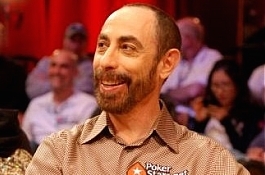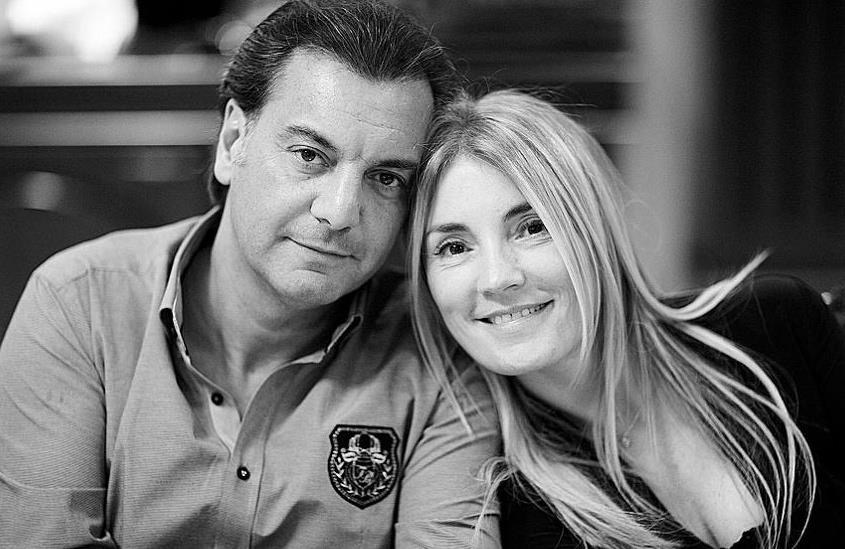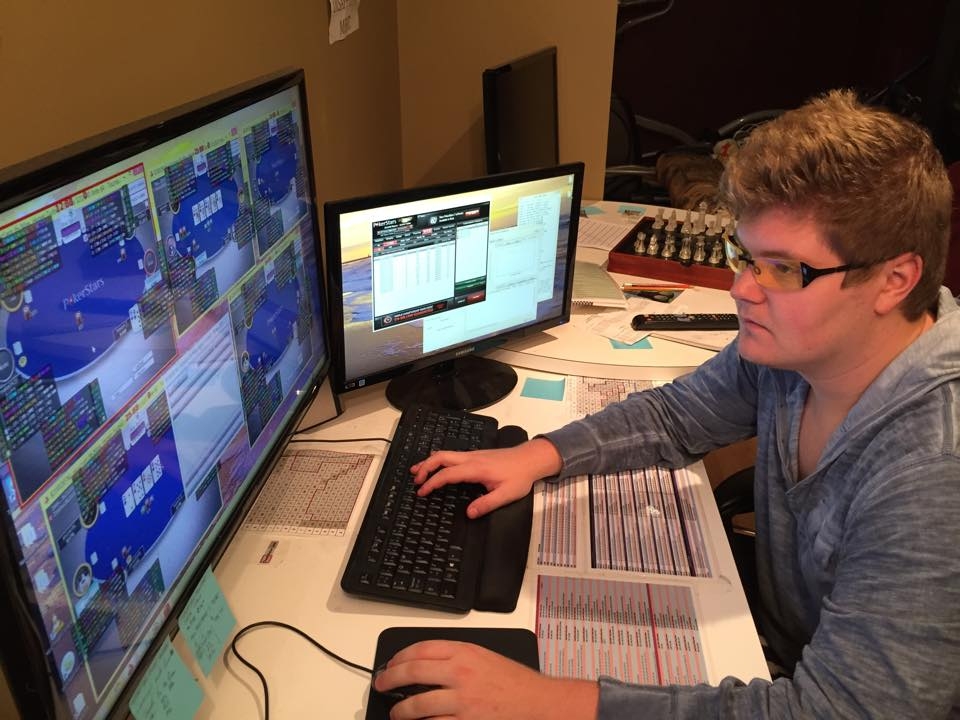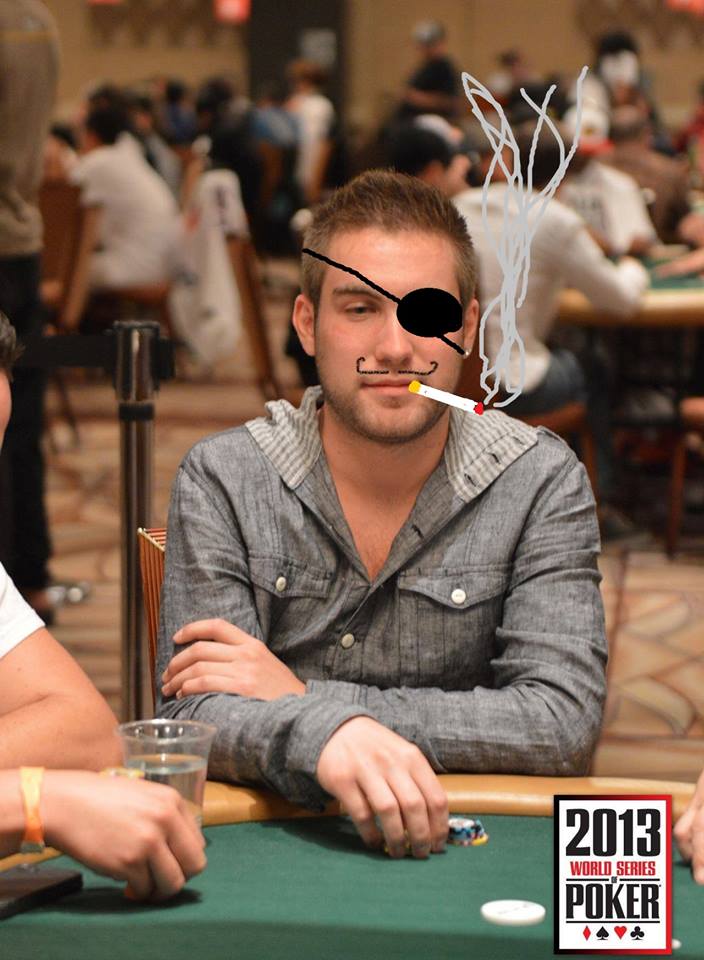
Barry Greenstein occupies a unique position in the world of the poker of today. Barry, who earns his living with poker for several decades already is associated with the older generation of poker players. It is also associated with the new generation of poker players, that of the "poker boom" because groups thinking about poker that he joined, his son-in-law, a player of professional poker, Joe Sebok, and its strategy site, PokerRoad.
Recently, the PokerNews team met him for an interview just before his departure for the 2009 World Poker Tour Championship at the Bellagio. This interview was conducted on an empty poker table where already taken place of players such as Doyle Brunson, Phil Ivey, Eli Elezra, Sam Farha and other big names of poker. Greenstein talks about several topics including his own career, contemporary culture, the future of PokerRoad, the next WSOP and of course, the idiocy of the poles!
Many of us know Barry Greenstein as being the one who gave all his winnings to charity or as being the Robin Hood of poker. I know that charities continue d ' be important to you. Recently, you were at the Jennifer Harman at the Venetian charity tournament...
Many of us know Barry Greenstein as being the one who gave all his winnings to charity or as being the Robin Hood of poker. I know that charities continue d ' be important to you. Recently, you were at the Jennifer Harman at the Venetian charity tournament...
Barry Greenstein: Yes I was there. Throwing a few dollars here and there.
I know that it is not accurate to say that today ' today you give all your winnings...
Greenstein: No, it's very inaccurate today. When I gave my money to charity, people immediately thought that I was a super rich guy with Symantec (the company that Greenstein worked). What they did not know, is that I did not so much money that much with my work and the money that I gave, it was only my poker winnings.
However, today things have changed. I am much less money today with than before poker tournaments. Poker is now much more online. The good LIVE parts are rarer. And in addition, the economy is so good. Like many poker players, I invested my money in the stock market and you know what? It has really been very good lately. I lost several million in it.
So, I no longer have the bankroll that I had at the time where I gave my tournament winnings. In addition, in recent years, I no longer play many tournaments. Sometimes I am lucky enough to win some, but I am no longer in also great financial shape than I was at the time. So, I remain involved in Children Incorporated and does many things for them, but it is just what I do and I give more about the money that I gave there a few years.
You have made this very clear in recent interviews: you do not base your success at poker on the big tournaments you have earned. Which means that you have won 3 bracelets of the WSOP, some WPT title in addition to several other large Tournament awards, but you do not call it triumph?
Greenstein: It is clear that my first win at the World Poker Tour (at the Jack Binion World Poker Open in 2004) was the best. I was not playing so many tournaments that much. I have not traveled the first year of the WPT as several people have done. But I got the idea to give my money to a charity and it was really on the stroke of the pulse. I told myself that if I was able to win the million dollars and giving it back, it was really a good thing to do, to help people. I believe that other people have followed my initiative. What gave me lots of good vibes!
And now I realize how much I'm lucky. In time (it happens to several poker players) I thought that I was the best, I could "outplayer" (upgrade) any player. And I played well, I took good decisions, but I earned my 50-50 and I was on a good roll. But even if you think you'll win a tournament, you might well not win it. Everything does not always happen as you want, especially in a poker tournament.
But it happened. I won the tournament and I did many good things with this money. My family was proud. She saw me lose my time playing poker, but now she saw that I could do something useful with this money. My family was much more proud of the fact that I was helping people that I had won a poker tournament.
It is interesting to see how the attitude has changed through the years from poker and poker players. You need not look very far behind to see that poker is perceived much differently today. How do you perceive the poker today in popular culture?
Greenstein: Well, I believe that the gamblers were always cool guys in movies. Today poker is more legitimate. It is on television and several celebrities play. I believe that people understand the downside of gambling, whether it is the gambling Poker, at the stock exchange or any other form of gambling. People can lose their money. But the gamblers who have had success have been met well before the poker boom.
Before we saw people like Omar Sharif or James Bond playing poker, gambler. Given that it is now on television, people understand much better than before poker. They know the strength of their hands, they know that a color beats a suite, they know when to bluff and when not bluffing, when go all-in.
Today, many people recognize me for having already passed on TV and nobody ever told me that to be a poker player, it was a bad thing. It's more the things of the kind: "my 16 year old son watching you on TV," I hear. I believe that poker is more and more respected. The only negative comments I have received it is compared to religious questions.
This is now more than a year that PokerRoad is launched. The site takes every day of expansion and it continues to grow. What do you think will happen with this site?
Greenstein: Well, it goes like I want. We believe that we are in a good niche. Our site is entertaining: emissions of radio, web TV, comedy, forums stuff. In our opinion, the site contains the best content about poker that you can find in the Internet. We also believe that we have very good poker strategy discussions on our forums. I asked friends (Doyle Brunson, Phil Ivey, Eli Elezra and others) to do something special for the site during the WSOP and it will do. And no one has friends like that.
-
Interview with Marc-Étienne "Général Irish" McLaughlin< Prev
Poker Strategy
Most recent
New book: Jonathan Little on the cash games lives
in Review of book
A new book just published by D & B: Jonathan Little We Live No-Limit Cash Games 2 - The practice As you will have divine, the 400-page book deals for cash games lives, but in a very practical way. What we mean by "practice" is that it is the presentation of…









